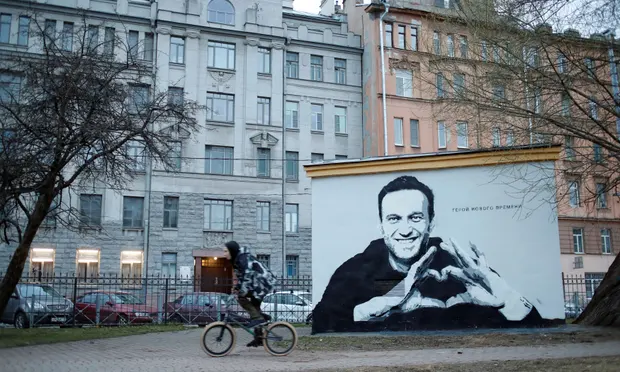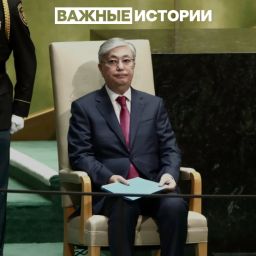In a message from his prison cell, the jailed Russian opposition activist calls for the west to take sanctions against oligarchs

Exactly one year ago, I did not die from poisoning by a chemical weapon, and it would seem that corruption played no small part in my survival. Having contaminated Russia’s state system, corruption has also contaminated the intelligence services. When a country’s senior management is preoccupied with protection rackets and extortion from businesses, the quality of covert operations inevitably suffers. A group of FSB agents applied the nerve agent to my underwear just as shoddily as they incompetently dogged my footsteps for three and a half years – in violation of all instructions from above – allowing civil investigating activists to expose them at every turn.
To be fair, a regime based on corruption can perform more elementary tasks to perfection. The judicial system – the first thing autocrats intent on robbing their nation take control of – functions perfectly on a quid pro quo basis. That is why, when I went back to Russia after medical treatment, I was taken straight from the plane to prison. There is not much to celebrate in that, but at least I now have time to read the memoirs of world leaders.
In those books, the world’s leaders write terribly interestingly about how they solved the main problems facing humankind: wars, poverty, migration, the climate crisis, weapons of mass destruction. These are the issues on the “big agenda”. The fight against corruption, on the other hand, rarely figures as part of what they hope will be their legacy. This is not surprising; it is a “secondary agenda” item.
Amazingly enough, though, corruption nearly always merits a mention when the world’s leaders are describing failures – whether their own or, more commonly, those of their predecessors.
“We spent years, hundreds of billions of dollars and thousands of human lives in Iraq [or Afghanistan, you name it] – but the corrupt government of al-Maliki [or Karzai, you name them] alienated the people with its thieving, opening the path to victory to radicals armed with slogans about honest, fair government and RPGs.”
This leads to an obvious question. Guys, if corruption is preventing us from finding solutions to the problems of the “big agenda”, has the time perhaps come to raise it to a priority on that agenda?
It is not difficult to see why that has not already been done. Corruption is a tricky issue to discuss at global summits. Suppose you are discussing Syria and cyber-attacks with Vladimir Putin. Everyone finds that interesting, everyone knows where they are. At the concluding news conference everyone will have something to say.
Now imagine a meeting with Putin on the issue of corruption. The very fact it has been raised represents a move to personalities. The whole thing, from start to finish, is awkward. The richest leader in the world, who has fleeced his own country, is being invited to discuss how to deal with the problem of himself. Very tricky, very awkward.
Now turn on the news. It is precisely the fact that the west “failed to notice” the total corruption in Afghanistan – that western leaders preferred not to talk about a topic they found embarrassing – which was the most crucial factor in the victory of the Taliban (with the support of the population). The west did not want to discuss the plundering of the budget; it was much better to focus on people being stoned to death or execution by beheading.
After the implosion of the USSR and the end of the global ideological confrontation, it was corruption – in its classical definition, “the exploitation of an official position for personal gain” – that became the universal, ideology-free basis for the flourishing of a new Authoritarian International, from Russia to Eritrea, Myanmar to Venezuela. And corruption has long ceased to be merely an internal problem of those countries. It is almost invariably one of the main causes of the global challenges that face the west.
A new “hot” war in Europe with the use of airstrikes and artillery? That is Putin taking revenge on Ukraine for the anti-corruption revolution that deposed his protege, Viktor Yanukovych. Religious extremists of all stripes find it easier to conduct propaganda when their opponents are driving Rolls-Royces through the streets of penniless countries. Migration crises are caused by poverty, and poverty is almost always caused by corruption.
“It’s just as well climate change is unrelated to corruption!” you may ironically reflect. I invite you to say that in the face of the millions of hectares of Siberian forest that burn every year because of barbaric total clearance, violating the fire regulations for forest management. I am reluctant to make this prediction, but fear the next big terrorist attack will not be just another bomb blast by religious fanatics but, for example, a chemical weapon in the water supply network of a major city or a devastating attack on the IT infrastructure of an entire country, and that those commissioning the terrorism will be one or other of the people in possession of a golden palace. The reason for perpetrating it will be to divert the world’s attention from golden palaces to global security issues.
So it is not we who should feel awkward about confronting corrupt authoritarians with tough questions and getting personal but, on the contrary, they who should know that their shady dealings will invariably be the main focus of discussion at world summits. That would be a crucial step towards eliminating the root cause of many “big” issues.
OK, but what are we supposed to do? Surely there isn’t much that people in Washington or Berlin can do to combat the corruption of officials in Minsk or Caracas?
True, but it is also the case that an important aspect of corruption in authoritarian countries is the use it makes of the west’s financial infrastructure – and in 90% of cases, what has been stolen is stored in the west. An official working for an autocrat knows better than anyone how important it is to keep his capital well away from his colleagues and boss.
All it takes to get started is for western leaders to show determination and political will. The first step is for corruption to be transformed from a source of limitless opportunities into an onerous burden for at least some of the elites surrounding autocrats. That will split them, and increase the voices in favour of modernisation and scaling back corruption – who will be strengthened and provided with new arguments to put forward in elite circles.
The following five steps are entirely realistic, easy to implement, and can make a highly effective start to combating global corruption.
First, the west should formulate and recognise a special category of “countries that encourage corruption”, which will enable the taking of uniform measures against groups of countries, rather than imposing sanctions on particular states.
Second, the main sanction – the main tax on corruption, if you will – for this group of countries should be “enforced transparency”. All documentation relating to contracts concluded between western companies and partners from countries representing corruption risks should be published if the contracts are to the slightest degree connected with the state, its officials, or their relatives.
You work for a state-owned company in a country at high risk of corruption and want to buy a villa on the French Riviera? Fine, go ahead, but you should know that all the information about the deal will be publicly available. You want to have dealings with an official in Minsk or the aunt of a Russian governor? No problem, but you will have to publish the entire paper trail of the transaction, and will no longer be able to conceal the bribe you pay through that “regional representative” or “local partner”.
Third, combating corruption without combating corrupt individuals is the merest hypocrisy and undermines voters’ trust. Until personal sanctions are imposed on oligarchs, primarily those in the entourage of Putin – the role model for all the world’s corrupt officials and businessmen – any anti-corruption rhetoric from the west will be perceived as game-playing and hot air.
There is nothing more frustrating than reading the latest sanctions list, replete with the names of intelligence service colonels and generals nobody has ever heard of, but meticulously cleared of the people in whose interests these colonels act. The west needs to free itself of a semantic mindset where the label “businessman” acts as an indulgence, making it very difficult for them to figure on sanctions lists. Putin’s oligarchs, those heading “state-owned” companies and companies that are formally private but whose prosperity is linked to Putin’s group, are not businessmen but leaders of organised crime groups. At present, alas, the western establishment acts like Pavlov’s dog: you show them a colonel of the intelligence services and they yell, “Sanction him!”; you show them the oligarch paying the colonel, and they yell, “Invite him to Davos!”
Fourth, the US, UK and Germany already have excellent tools for combating foreign corruption, such as the Foreign Corrupt Practices Act, the Bribery Act, and so on. Guess how many cases have been brought following reports by our Anti-Corruption Foundation, now categorised as an extremist organisation by Putin’s government?
That’s right, none. The sad fact is that even western law enforcement agencies treat corrupt foreign officials with kid gloves. With a little political will on the part of the government (and pressure from public opinion) that situation can be put right.
Fifth, obstructing the export of political corruption clearly deserves the establishment of an international body or commission. Take a look at what is going on right now. By investing relatively small sums of money, the redoubtable Putin is buying up extreme-right and extreme-left movements throughout Europe – turning their politicians into oligarchs and agents of his own. Legalised bribery is flourishing, often in the form of board memberships at state-owned companies. A former German chancellor, or a former Italian prime minister, or a former Austrian foreign minister, can act as background dancers for the Russian dictator, normalising corrupt practices. All contracts linking former or current western politicians with business partners from corrupt authoritarian countries should also have to be open to public scrutiny.
These are first steps, but even they will have a significant impact, creating elite groups within authoritarian countries for whom campaigning to reduce levels of corruption will become a rational choice.
No money, no soldiers, no reconfiguration of industry or world politics are needed in order to start taking action. Only political will – which, unfortunately, is often in short supply. Public opinion and the wishes of voters are what can finally get things moving. Then some day world leaders will be able to write in their memoirs that they solved many major problems on the “big agenda” simply by eliminating their root cause – without troops, without billions of dollars, and without wasted decades.
Translated by Arch Tait
- Alexei Navalny is a Russian lawyer and political and financial activist
The Guardian by Alexei Navalny
